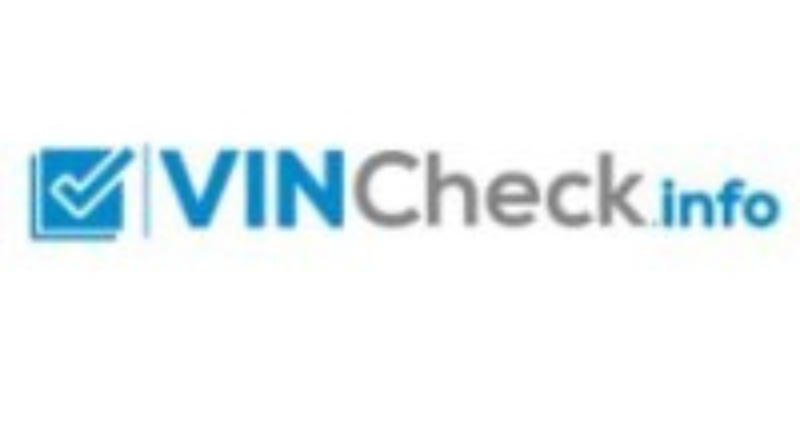VIN check before buying used car | VINChecker
Introduction
Buying a used car? A free VIN check can save you from costly mistakes. VINCheck.info is a popular tool that provides basic vehicle history reports at no cost. While it doesn’t offer as much detail as paid services like Carfax, it’s a great starting point to uncover major red flags before purchasing a used vehicle.
In this 2,000-word guide, you’ll learn:
✅ What VINCheck.info is and what it offers
✅ How to run a free VIN check step by step
✅ What information you’ll get in the report
✅ Limitations of the free version
✅ When to upgrade to a paid report
✅ Red flags to watch for in a vehicle history
By the end, you’ll know exactly how to use VINCheck.info to avoid scams, verify a car’s history, and make a smarter buying decision.
1. What Is VINCheck.info?
Overview
VINCheck.info is a free online tool that provides basic vehicle history reports using a car’s 17-digit VIN (Vehicle Identification Number). It pulls data from government databases, insurance records, and salvage auctions to give you key insights into a vehicle’s past.
What Does It Show for Free?
✔ Title status (clean, salvage, rebuilt, junk)
✔ Odometer readings (helps detect rollback fraud)
✔ Theft records (if the car was ever reported stolen)
✔ Basic accident history (if reported to authorities)
✔ Lien & loan information (if any outstanding debts)
🚫 Limitations:
- Not as detailed as Carfax or AutoCheck
- May not show minor accidents
- Some records depend on state reporting
💡 Best For: Quick checks before buying, verifying seller claims, or ruling out severely damaged vehicles.
2. How to Use VINCheck.info – Step-by-Step Guide
Step 1: Locate the Vehicle’s VIN
Before using VINCheck.info, you need the 17-digit VIN, which can be found:
- On the dashboard (visible through the windshield, driver’s side)
- Driver’s side door jamb (on a sticker or metal plate)
- Vehicle title & registration
- Insurance documents
📌 Pro Tip: Always physically verify the VIN on the car matches the paperwork. If they don’t match, the car could be stolen or have a cloned VIN.
Step 2: Go to VINCheck.info
Step 3: Enter the VIN & Run the Check
- On the homepage, you’ll see a search bar labeled “Check Any VIN”.
- Type in the 17-digit VIN (no spaces or dashes needed).
- Click “Check VIN” or press Enter.
Step 4: Review the Free Report
After a few seconds, VINCheck.info will generate a basic vehicle history report. Here’s what to look for:
A. Vehicle Specifications
- Make, model, year
- Engine type & transmission
- Manufacturing country
B. Title History
- Clean title (no major damage reported)
- Salvage title (car was declared a total loss)
- Rebuilt title (salvage vehicle that was repaired)
- Junk title (not road-legal)
🚩 Red Flag: Avoid cars with salvage or junk titles unless you’re a mechanic.
C. Odometer Readings
- Checks for odometer rollback fraud (if mileage decreases over time)
🚩 Red Flag: If the odometer shows lower miles than before, the car may have been tampered with.
D. Theft & Accident Records
- Stolen vehicle alerts (if reported to police)
- Major accidents (if reported to insurance/DMV)
🚩 Red Flag: A car with multiple accidents or unrepaired damage could be unsafe.
E. Lien & Loan Information
- Shows if there’s an outstanding loan on the vehicle
🚩 Red Flag: If the car has a lien, the seller must pay it off before transferring ownership.
3. What’s Missing in the Free Report?
While VINCheck.info is useful, it doesn’t show everything. You may need a paid report for:
- Full accident history (minor fender-benders may not appear)
- Service & maintenance records
- Detailed ownership history
- Lemon law buybacks
- Recall repairs
💡 When to Upgrade to a Paid Report?
- If the car is expensive or high-mileage
- If the seller’s story seems suspicious
- If the free report shows possible issues
🔍 Best Paid Alternatives:
- Carfax ($39.99) – Best for dealer-sold cars
- AutoCheck ($24.99) – Good for auction vehicles
- Bumper ($9.99) – Budget-friendly option
4. Common Red Flags in a VIN Check
🚩 Salvage or Rebuilt Title → Severe past damage
🚩 Odometer Rollback → Fraudulent mileage
🚩 Multiple Accidents → Hidden structural issues
🚩 Lien on the Vehicle → Seller owes money on the car
🚩 No History Reported → VIN may be fake or tampered with
5. Final Verdict: Is VINCheck.info Worth It?
✅ Pros:
- Free & easy to use
- Reveals major title issues
- Helps avoid stolen cars
❌ Cons:
- Not as detailed as paid reports
- Some data may be outdated
📢 Best Used For:
✔ Quick pre-purchase checks
✔ Verifying seller claims
✔ Ruling out severely damaged cars
Conclusion
Using VINCheck.info is a smart first step when buying a used car. While it won’t give you a full history report, it can expose major red flags like salvage titles, theft records, and odometer fraud.
Next Steps:
- Run a free check on your target vehicle.
- If the report looks clean, consider a paid report for deeper insights.
- If issues appear, negotiate a lower price or walk away.
By following this guide, you’ll avoid scams and make a confident purchase. Happy car hunting! 🚗💨
Found this guide helpful? Share it with friends looking to buy a used car!

